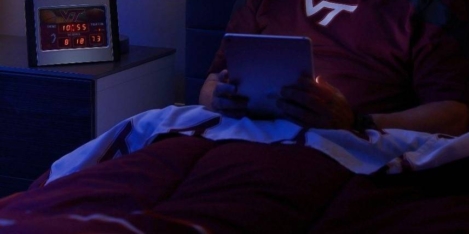December 19, 2018
ONS says Ill health and caring duties biggest barriers to work for older people
 The two most important barriers to working for those in their 50s and early to mid-60s are health and caring; according to the latest analysis from the ONS. Living longer: Fitting it all in – working, caring and health in later life, advises that although people in their 50s and early 60s have a good level of general health the prevalence of health problems increases over this age range and impacts on the likelihood of being in paid work. Of those potential older workers who are out of work (but would like to work), 38 percent of men and 28 percent of women are unemployed. Women are more likely to be looking after home or family than men (19 percent and 6 percent). Over a third of people aged 50 to 64 years are out of work because they are sick or disabled – with ill health the main barrier to working for both men (37 percent) and women (35 percent).
The two most important barriers to working for those in their 50s and early to mid-60s are health and caring; according to the latest analysis from the ONS. Living longer: Fitting it all in – working, caring and health in later life, advises that although people in their 50s and early 60s have a good level of general health the prevalence of health problems increases over this age range and impacts on the likelihood of being in paid work. Of those potential older workers who are out of work (but would like to work), 38 percent of men and 28 percent of women are unemployed. Women are more likely to be looking after home or family than men (19 percent and 6 percent). Over a third of people aged 50 to 64 years are out of work because they are sick or disabled – with ill health the main barrier to working for both men (37 percent) and women (35 percent).









 Flexible workers claim to work more effectively than those working a traditional ‘nine-to-five’, with a quarter of respondents (27 percent) in a recent poll saying they work longer hours in their new flexible working routine than they did when they worked normal office hours. The research, which was commissioned by the AAT (Association of Accounting Technicians) found that flexible workers think they put in almost seven hours more each week on average than they did previously. The research, which looked at the productivity of a group of workers who set their own hours or working location against a group of those who are not doing so, found that the former benefit from feeling happier and less stressed.
Flexible workers claim to work more effectively than those working a traditional ‘nine-to-five’, with a quarter of respondents (27 percent) in a recent poll saying they work longer hours in their new flexible working routine than they did when they worked normal office hours. The research, which was commissioned by the AAT (Association of Accounting Technicians) found that flexible workers think they put in almost seven hours more each week on average than they did previously. The research, which looked at the productivity of a group of workers who set their own hours or working location against a group of those who are not doing so, found that the former benefit from feeling happier and less stressed. 
 A new survey into happiness at work suggests it is viewed differently according to age. Baby boomers: aspire to have job security and think careers are defined by employers. Gen X: aspire to have a work-life balance and although are loyal to a profession will not necessarily stick with the same employer. Millennials or Gen Y aspire to have freedom and flexibility and are digital entrepreneurs while Gen Z aspire to have security and stability. The report by Instant Offices’ considered what is important to each age group, and how employers approach the age gap. It found that eight in 10 millennials look for a manager to act as a mentor or coach; Baby boomers want a boss to be ethical, fair and consistent, while 61 percent of Generation X, and 55 percent of millennials, think team consensus is important.
A new survey into happiness at work suggests it is viewed differently according to age. Baby boomers: aspire to have job security and think careers are defined by employers. Gen X: aspire to have a work-life balance and although are loyal to a profession will not necessarily stick with the same employer. Millennials or Gen Y aspire to have freedom and flexibility and are digital entrepreneurs while Gen Z aspire to have security and stability. The report by Instant Offices’ considered what is important to each age group, and how employers approach the age gap. It found that eight in 10 millennials look for a manager to act as a mentor or coach; Baby boomers want a boss to be ethical, fair and consistent, while 61 percent of Generation X, and 55 percent of millennials, think team consensus is important. 




 All the chatter around the growth of flexible working might suggest it has now become the norm, but an academic paper refutes that view by revealing a third of all UK workers believe those who work flexibly create more work for others. A similar proportion believe their career will suffer if they use flexible working arrangements. This is the main finding from Dr Heejung Chung from the University of Kent who set out to analyse data from the 2011 Work-Life Balance Survey conducted by the government. Specifically, she wanted to examine whether stigma against flexible workers exists, who is most likely to hold such beliefs and who is most likely to suffer from it. The research also found that the majority of respondents that held negative views against flexible workers were male, while women and especially mothers were the ones who were most likely to suffer from such stereotypes.
All the chatter around the growth of flexible working might suggest it has now become the norm, but an academic paper refutes that view by revealing a third of all UK workers believe those who work flexibly create more work for others. A similar proportion believe their career will suffer if they use flexible working arrangements. This is the main finding from Dr Heejung Chung from the University of Kent who set out to analyse data from the 2011 Work-Life Balance Survey conducted by the government. Specifically, she wanted to examine whether stigma against flexible workers exists, who is most likely to hold such beliefs and who is most likely to suffer from it. The research also found that the majority of respondents that held negative views against flexible workers were male, while women and especially mothers were the ones who were most likely to suffer from such stereotypes.
 Over a third (35 percent) of UK workers continue to work when then get home from the office, claims research from
Over a third (35 percent) of UK workers continue to work when then get home from the office, claims research from 




 Generation Z, the latest generation to enter the workforce, are more likely to be motivated by job satisfaction and working for social good than by money, a new report claims According to new research from Huawei, in partnership with Chris Brauer, Director of Innovation at Goldsmiths, University of London, based on responses from 2,000 18-25-year olds’ across the UK, also reveals that a new tribe of working professionals among Gen Z is emerging, the ‘New Working Order’.
Generation Z, the latest generation to enter the workforce, are more likely to be motivated by job satisfaction and working for social good than by money, a new report claims According to new research from Huawei, in partnership with Chris Brauer, Director of Innovation at Goldsmiths, University of London, based on responses from 2,000 18-25-year olds’ across the UK, also reveals that a new tribe of working professionals among Gen Z is emerging, the ‘New Working Order’. 








December 13, 2018
Flexible working should not mean employers ask people to work all the time
by Oliver Shaw • Comment, Flexible working, Wellbeing
Talking about the role of technology within the flexible working arena is hardly ground-breaking. For decades, technological advancements have been hailed as pivotal to developments within the employment landscape. But this year, conversation appears to have reached another level. In an article for Open Access Government in June 2018, for instance, Richard Morris, UK CEO of International Workplace Group (IWG), explained the extent to which technology-driven shifts have caused significant social change. And in September, HR headlines homed in on a study by Capita and Citrix, which stressed that an inability to quickly introduce new IT services is restricting organisations’ flexibility proposition, and consequently their competitiveness.
(more…)